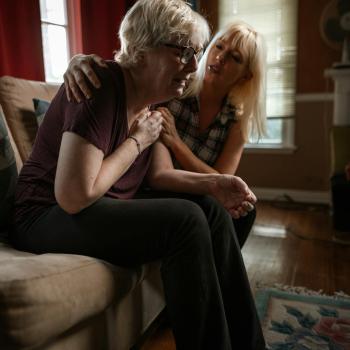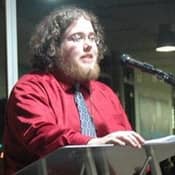"Praying and lighting votives for the West Memphis Three," said her Facebook status.
The name had no meaning to me. There have been a number of media-granted titles built on that frame, and it's hard to keep the names straight sometimes. But given that my friend was lighting votives for them, I figured that it was worth my time to investigate. I expected that to find something related to a relatively recent event—at first, I thought it might have something to do with the triple homicide outside a schoolyard a few years ago, but then I remembered that happened in New Jersey.
Instead, I was brought back to an old case with new developments, a case that took me to places I couldn't have expected.
Memphis Magazine tells the story: in May 1993, three eight-year-old boys were found, murdered, in a drainage canal in West Memphis, Arkansas. As you can imagine, in the face of such "monstrous evil," as USA Today put it, people were desperate for arrests and convictions. They got them: a month after the murders, 17-year-old Jessie Misskelley confessed to the murders, implicating two others, 18-year-old Damien Echols and 16-year old Jason Baldwin. Misskelley's confession was released to the press, and he was convicted largely on its basis.
Misskelley, however, would not testify against Echols and Baldwin; he had recanted his confession and refused the promise of a lighter sentence in exchange for testimony. Unable to use the confession, the keystone of Misskelley's trial, in the prosecution of the other two accused teenagers, they instead made use of two new witnesses. One was a young woman who claimed Echols had driven her to an "esbat;" the other, Dr. Dale W. Graffis, was a "cult expert" with a Ph.D. granted through a mail-order company.
The prosecution made the case that the boys had been murdered as part of a Satanic ritual, due to the crime's "trappings of occultism." The teenagers were implicated as "Satanists" by virtue of wearing black clothes and listening to heavy metal (and U2, which would have struck me as pretty solid evidence of not being a Satanist.) One member of the jury apparently said, during the course of the trial, "All you had to do to know that Echols was a devil worshiper was to look in his eyes." Baldwin and Misskelley got life in prison; Echols was sentenced to death.
The already flimsy evidence has, in the years since, been shown to be suspicious; Misskelley's confession, for example, came as a result of an eight-hour interrogation sequence without a lawyer or his parents present, and only the confession was recorded. And of course, any pagan or actual Satanist could point out how ludicrous those "trappings of the occult" were. Still, for over a decade and a half, the West Memphis Three, as they came to be called, were unable to convince the state of Arkansas to grant them an appeal and a new trial, even after new DNA tests displayed no evidence whatever that the Three had been near the site of the murder.
That seems to have changed as of Friday, August 19: as reported by our own The Wild Hunt, the West Memphis Three have been freed, if not completely exonerated. As of about 2:00 PM EST, Echols, Misskelley, and Baldwin have left prison. While certainly not a perfect outcome, it's a better ending than most wrongly accused people get.
As a pagan, there is no end to things to be angry about in this case: here we saw a young man prosecuted, convicted, and sentenced to death row on the basis of his interest in heavy metal, black clothes, and Wicca. (Echols has since converted to Buddhism, as I understand it, but the point stands.) The prosecution used words like "esbat" to intimidate and frighten the jury. The portrait of "Satanism" on display in this trial doesn't resemble reality so much as it resembles Rosemary's Baby. They took our words, stripped them of their meanings, and used them to send a young man to his death.
But, oddly enough, that anger isn't really what comes to mind for me as I think about the West Memphis Three.
I would have been six years old at the time of the murders. (That, in itself, is a sobering thought: I was younger than those murdered boys.) The West Memphis Three were convicted largely on the basis of their Otherness: their clothes, their tastes in music, the fact that Echols was interested in "the occult," in that he read Wiccan books. This wasn't real evidence, but it was enough to take their lives away—in Echols's case, literally.





